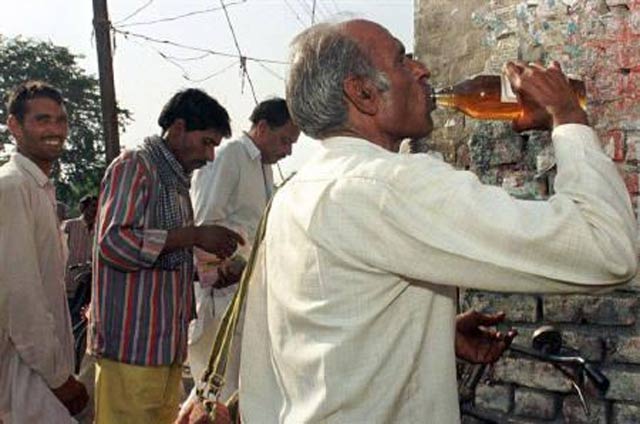
A two-judge bench of the Supreme Court headed by Justice Ejaz Afzal Khan observed on Monday that if there is a provision in Prohibition (Enforcement of Hadd) Order 1979 for taking action against violators regarding the sale of liquor, then why should the SHC step in for passing any order against such violations.
Asma Jahangir, representing wine shop owners, appeared before the two-judge bench and contended that her clients, while selling wine, did not violate Article 17 of the Prohibition (Enforcement of Hadd) Order 1979.
SHC again orders wine shops across Sindh sealed
Likewise, Deputy Attorney General Sajid Ilyas Bhatti read out Articles 17, 18, 19 20 of the Prohibition Order 1979 and stated that law is available for taking action against violators.
Around 10 shop owners had filed a petition through Jahangir against the SHC’s March 2 order, in which they requested the SC to suspend the order until the final verdict.
The SHC had ordered the provincial Excise and Taxation Department to immediately seal off all shops selling liquor in violation of the Hudood Ordinance of 1979.
Meanwhile, the SC bench, granting leave to appeal, has suspended the SHC order and asked the registrar’s office to fix the next hearing of the case before a three-judge bench instead of two.
The bench, however, observed that the police may take action in accordance with the law, when offence is committed. The hearing of the case has been adjourned for three weeks.
SHC grants govt more time to furnish explanation
Earlier during the month, a two-judge bench of the SHC, headed by Chief Justice Sajjad Ali Shah, had directed the provincial police chief to submit a compliance report.
However, the bench gave the Sindh government 30 days to develop a mechanism in consultation with all stakeholders, including members of minority communities and wine shop owners, to come up with a ‘practical, transparent and implementable mechanism’ to ensure only licensed shops sell liquor to non-Muslims, both local and foreign, in compliance with quota restrictions.
The petitioners’ filing appeal against SHC order in the SC had contended that the livelihood of shopkeepers and their families was at stake because of the SHC’s order. Over 24,000 citizens were working in the alcohol retail business in Sindh alone. Likewise, the order had not only affected the citizens working in the business but their families as well.
“The petitioners are not acting in any illegal manner. They were not given any opportunity to be heard or to make alternate business plans for themselves or their employees, and as such have been condemned unheard,” stated the petition.

1732745394-0/Diddy-(4)1732745394-0-165x106.webp)



1732697578-0/Untitled-design-(5)1732697578-0-270x192.webp)











COMMENTS (4)
Comments are moderated and generally will be posted if they are on-topic and not abusive.
For more information, please see our Comments FAQ